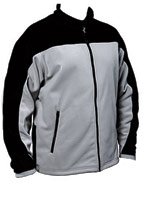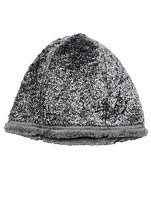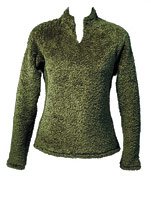Surf Cos. Look to the Slopes for New Business
Snowboarding is surfing on snow, and boardsports companies that have dominated the waves are paying more attention to the slopes.
Quiksilver Inc. caused a flurry when it agreed to buy France’s Skis Rossignol SA for approximately $300 million. Rossignol leads the global winter sporting goods market with its Rossignol, Lange, Look, Hammer and Dynastar brands and sells golf products under its Cleveland label. Rossignol also collaborates with French designer Jean-Charles de Castelbajac to produce fashionable and technical outerwear such as camouflage-print pants.
“Our ambition is to represent in outdoor [gear] what Nike and Adidas represent for team sports, with brands that kids will fight to get their hands on,” Reuters quoted Quiksilver President Bernard Mariette as telling a news conference when the deal was announced in March. Quiksilver already sells snowboard apparelunder the Quiksilverand Roxy brands and markets snowboards, snowboard boots and bindings under the Lib Technologies, DC Shoes, Gnu, Roxy and Bent Metal labels.
According to Quiksilver’s filings with the Securities and Exchange Commission, jackets, sweaters and snowboard apparel composed12 percent—and snowboards, snowboard boots, bindings and accessories constituted 2 percent—of $1.27 billion in revenue for the fiscal year ended October 2004. In comparison, T-shirts made up 19 percent of total revenue. Quiksilver representatives did not return calls for this story.
But the main reason companies such as Huntington Beach, Calif.–based Quiksilver are focusing on snowboarding is because the sport is growing in terms of sales and participants. Marie Case, managing director for market research company Board-Trac, said snowboarding is growing now at the same rate that skateboarding was five years ago.
Snowsports Industries America, a trade group based in McLean, Va., said sales of snowboard gear grew 4 percent to $64.4 million in the six months ended February, offsetting a drop in sales of alpine, nordic and telemark ski equipment. It also said snowboard apparel increased 8 percent to $36.8 million. The National Sporting Goods Association estimated that the number of snowboarders rose 4 percent to 6.6 million in 2004 from a year ago.
When it came to snowboard outerwear brands, men preferred Burton Snowboards and women favored Volcom and Quiksilver’s Roxy brand, according to a survey taken by Trabuco Canyon, Calif.–based Board-Trac in 2003, the latest year when it compiled results. In the combined rankings of popular outerwear brands for men and women, Burton topped the list with nearly 28 percent of responses, followed by Volcom with about 11 percent, Case said. The other labels completing the list, in descending order, were Four Square, Special Blend, Bonfire, Columbia Sportswear Co., The North Face, Burton’s Analog Clothing, Sessions andQuiksilver.
To stay ahead, Burlington, Vt.–based Burton teamed up with British designer Paul Smith and technology company Motorola Inc. on new items bowing for Fall 2005 and Winter 2006. Burton will offer a Gore-Tex jacket and pant designed by Smith as part of its high-end Mark XIII collection, which will be available only for men and sold primarily in boutiques and higher-end snowboard shops. A jacket created with Motorola will feature an embedded system that links to the wearer’s cell phone and iPod music player and lets him make calls or listen to music while snowboarding.
Hurley International will not jump into snow. Dan Levine, vice president of design and merchandising at the Costa Mesa, Calif.–based unit of Nike Inc., said Hurley presently has no plans for a collection focusing on snow sports or snowboarding, although it produces outerwear for customers who live in chilly regions.
“This will keep you warm in the winter, and it will have Hurley fashion in it,” Levine said. “If they want to wear our clothes on the slopes, that is great.”
But a 2-year-old start-up called Liquid Mountain LLC hopes to capitalize on the overlap between the surfing and snowboarding markets. After launching its surfwear for Summer 2005, the San Jose, Calif.–based company will begin shipping its Winter line of hats, fleece sweaters and soft-shell jackets for men and women in September. “There was a big need for technically focused products for women for winter,” said Liquid Mountain President Kerri Jaye, adding that the company is targeting snowboarders who are 25 and older.
One product the company is offering is a Polartec Thermal Pro fleece skullcap ($15 wholesale) that has a curve-shaped slit through which a woman can slip pigtails or a ponytail.
Liquid Mountain had a learning curve when it moved from water to snow.“We thought the water market will be a lot more difficult than it was and the winter market will be easier,” Jaye said. “We actually found the opposite at this point.”
She said some retailers commit their dollars to the big snowboarding brands. The snowboarding segment is also more expensive than the surf category.
“The snow products are more technical, and the fabrics are a little more costly with more coverage,” she said. “You use more fabric in a jacket than you do in a bathing suit.”
























